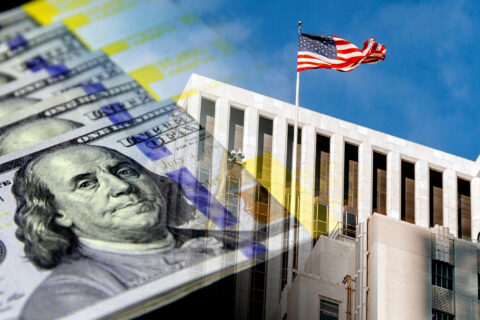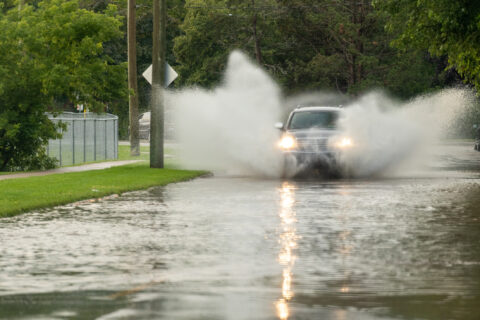Many of the federal grant program opportunities available through the Infrastructure, Investment and Jobs Act, also known as the Bipartisan Infrastructure Law, involve an eligible entity sharing the costs of the project. These requirements are often referred to as “cost-sharing” or “non-federal match requirements” and mean a portion of the project’s cost is not paid for by federal funds. Most of the cost sharing requirements are provided in the form of a percentage on the funding announcement. Generally, the federal government will provide up to 80 percent of the funding while the local government pays about 20 percent or less if your community faces disadvantages.
Local government leaders considering federal grants should ensure their community is ready to meet the match requirements tied to the federal program opportunities they are seeking. Communities of all sizes and locations have successfully raised their federal matching funds to leverage the federal dollars to build up their communities.
How do I determine what the match amount is?
The funding announcement should outline the percentage of the funds that must be made through a non-federal match or “cost-shared”. After learning what percent of the project is required to be funded by the local match, follow the steps below to calculate how much money your local government will need to provide to complete the project, if you receive the federal grant funding.
Source: U.S. Department of Transportation
What are some common ways I can meet the match requirement?
Cities, towns and villages may be limited by the types of funds that may be raised and used to cost share with the federal government on infrastructure projects. Your state’s laws may offer more or fewer ways to raise funds and special rules may exist to support infrastructure fundraising specifically. Local leaders should check with their own state or local requirements, stipulations, and with their proper experts when identifying the method for raising their local match.
Below are three categories of local matching. More information on specific ways to raise the local matching funds can be found on this previous blog post.
- Federal fund braiding – In some instances, federal fund braiding can be used for local match. This is when funds from one federal program are used to meet the match requirements for another. Not every federal funding source is allowed to be used as funding for a local match, so it is important to determine eligibility. For example, the Community Development Block Grant (CDBG) Program allows for CDBG funds to be used to meet the match requirements on other federal grants. Municipalities should check out the Build America Bureau for financing certain infrastructure projects that can count towards a federal match in some instances.
- Cash match – Cash matching includes cash spent for project-related costs. They must include costs that are necessary, reasonable, and allowable under the federal program. Some examples of cash sources for local governments may be through the implementation of local taxes such as a local option sales tax, gas tax and through implemented motor vehicle registration fees earmarked for infrastructure related funding purposes. Additionally, local governments also have access to their traditional funding options found in careful fiscal management, proactive planning of their budgets and in the form of municipal bonds. Local governments cash access may also be through their general/discretionary/revolving funds, municipal bonds, the American Rescue Plan Act State and Local Fiscal Recovery Funds, or other special reserves and fees.
- Third-party partnerships and in-kind match – Local governments can partner with community organizations, foundations, or other third-parties for in-kind matching (such as supplies, equipment or space). The value of this in-kind match must not exceed the fair market value at the time of the in-kind donation. Local third parties that may have interest in making an in-kind donation can be valuable partners in assisting a local government in making their local match requirement and can create projects that foster community building and investment. Additionally, local leaders can choose to accept funds from or partner with private or other governmental partners in their region such as chambers of commerce, transit, ports, airports, toll and other public authorities, their state government or foundations.
Is my municipality eligible for match requirement flexibility?
Not every federal program has match or cost-sharing requirements. For example, some highway safety and expedited project delivery projects offer a 100 percent federal match, not contingent on the type of community the project is serving. Additionally, some environmental programs such as Brownfields, the Clean School Bus program and the Energy Efficiency and Conservation Block Grant do not require a local match. The White House Guidebook provides federal cost share information for every program under the Bipartisan Infrastructure Law.
There are many federal programs funded through the Bipartisan Infrastructure Law that provide flexibility in cost-sharing requirements. Some of these flexibilities may be available to your community if it meets the following criteria.
Urban match flexibility
For disadvantaged communities in urban areas, the following programs provide match flexibility:
- The Rebuilding American Infrastructure with Sustainability and Equity (RAISE) discretionary program provides 100 percent federal cost share for projects located in rural, historically disadvantaged communities, or areas of persistent poverty.
- The Bridge Formula Program provides a 100 percent federal cost share for off-system bridges owned by a local government or Tribe.
- The Area of Persistent Poverty Program has an across-the-board minimum federal share of 90 percent of the net total project cost for funded transit projects, and applicants can request up to 100 percent federal funding.
Rural match flexibility
There are many discretionary grant programs that provide cost sharing flexibility for rural communities. The definition of “rural” may be different between federal programs. To find a list of rural-specific programs that have flexible cost-sharing requirements, visit the Bipartisan Infrastructure Law Rural Playbook.
Justice40 match flexibility
The Justice40 Initiative has set a goal that 40 percent of the overall benefits of certain federal investments flow to disadvantaged communities that are marginalized, underserved, and overburdened by pollution. Because of this, there may be some Federal grant programs that offer match flexibility. A list of Department of Transportation Justice40-covered programs with no federal match requirement is available here.
Case examples of cities making their match
Flagstaff, AZ
The Fiscal Year 2022 round of Infrastructure for Rebuilding America (IFRA) awarded Flagstaff, AZ with over $32 million in funding for a Downtown Mile and Connectivity Improvement Project.
This rural grant is providing sixty percent of the project funding which will improve pedestrian route and safety and enhance the rail infrastructure along a one-mile segment of the Burlington Northern and Santa Fe (BNSF) Southern Transcontinental Corridor. The forty percent, non-federal match is being provided by Flagstaff and BNSF.
Flagstaff is proving $12.5 million through its Proposition 419 partner funding and allocated Transportation and Stormwater funding. Proposition 419 is a city transportation sales tax for roads, pedestrian improvements, bicycle infrastructure and safety improvement at a combined rate of 0.426 percent. This sales tax has been in place since 2000.
BNSF is providing the remaining $11 million through private contributions. BNSF assisted in the grant application process.
Waterloo, IA
Waterloo, IA received a rural, capital RAISE grant in Fiscal Year 2022 to make complete streets improvements along 2.7 miles of La Porte Road. Upgrades will include separate dedicated bicycle and pedestrian paths, lighting, dedicated turn lanes, and bus shelters to the route.
RAISE grant funds will provide 70.7 percent of the total project cost. The remaining project cost and non-federal match will be covered from a variety of sources including over $300,000 from city general property tax collections, Local Option Sales Tax, Storm Water Management Fees and/or Bonding Revenue and Metropolitan Planning Organization (MPO) Surface Transportation Block Grant (STBG) funds. Over $8 million will come from Iowa (DOT) STBG SWAP Funds. and over $150,000 will come from TAP funding.










